INTRODUCTION
If you work in a regulatory role, you know how hard it can be to look for exactly that regulations, about that specific product in that specific country.
Of course there are tools that make it easier to search, usually in the form of a database collecting most of the regulations and then allowing the user to search in various ways for these documents. Digicomply is one of those tools, and since we are aiming to be the fastest and most complete of these tools, we analysed in detail how our users from worldwide international organizations used it to retrieve regulations.
And the, after a thorough discovery phase, we came aup with a new UX solution that would make the search faster, A LOT faster.
In order to show you this new functionality in detail, in this article we are going to explore various use cases for one of Digicomply’s most recent and already most used tools: the regulations catalogue.
While Digicomply allows you to search for any kind of documents (regulations, but also drafts, news, proposals, guidance documents, scientific articles, etc.), the Regulations Catalogue was specifically designed to search for regulations only.
The four search categories for regulations
First of all, let’s start by understanding the four search categories built within the Regulations Catalogue:
1. Markets2. Topics
3. Product Categories
4. Sources
Markets: Markets organise regulations by country and area, and it includes all the 140+ countries covered by Digicomply. It also includes major trade blocs such as the European Union.
It is also possible to search those regulations that are classified as “International” e.g. standards coming from Codex Alimentarius.
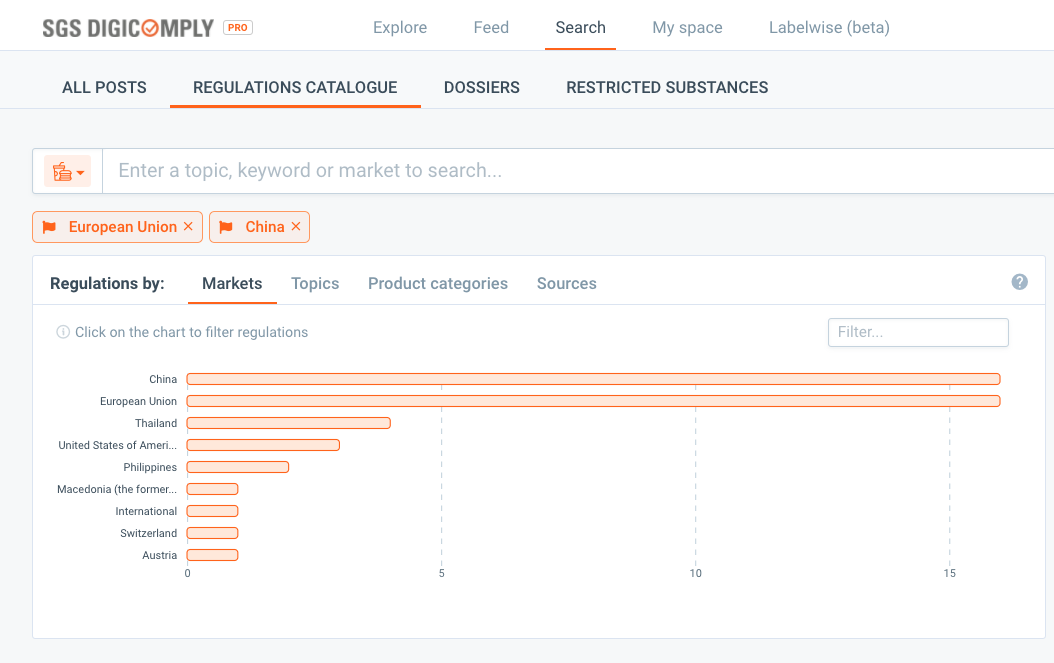
In the image above, the European Union and China were selected. This allows us to search for regulations that affect both those countries. If for example we add Thailand to the selection, it’s like applying an “AND” filter that includes those regulations that apply to European Union AND China AND Thailand. Naturally, there are not many regulations that apply to all three of these markets but this shows the ability to quickly narrow down to the impacted markets.

Topics: As the name suggests, this allows to search for all the topics that are classified within Digicomply’s database.
As for the countries, if the user doesn’t add any keywords, it displays topics sorted from the most numerous to the least. So for example we find “Trade, Market and Official Controls”, “General Law and Standards”, “Animals and Animal feeds”, “Contaminants, Residue and Contact Material”, “Labelling”, and so on.
Product Categories: Product categories include all the food categories that are addressed by regulations: fruits and vegetables, meat, dairy products, beverages, food supplements, livestock feed, etc,
Sources: the sources filter, for some users will be extremely functional, as it allows to narrow the search down to only selected regulations sources. These include EUR-lex, FDA, Legifrance, and all the various country-specific governmental sources.
Putting it all together - An Example comparing a Search in Google with the Regulations Catalogue
The main aim of the Regulations Catalogue is to find relevant information in a very short time by navigating the huge amount of documents regarding regulations at the click of a button. As an example, let’s say we are looking for the most recent regulations for food supplements used in children's food in Brazil.
In our example, we know that there is a recent regulation that has been published on November 18th 2020. But in the real world, we don’t know this, so we start from Google, and we look for something like:
“food supplements children brazil regulations 2020”.
And we get about 12 million results, of which the first is a series of articles, not strictly regulations. And then there are some research papers, but no trace of official regulations.
Let’s pretend for the sake of this example, that we are already experts in the brazil market and we know such a regulation could be emitted by ANVISA, the main organ for food regulations in brazil.
So we search for “food supplements children brazil regulations Anvisa”.
And again, all we get is a series of articles talking about Anvisa, see the image below:
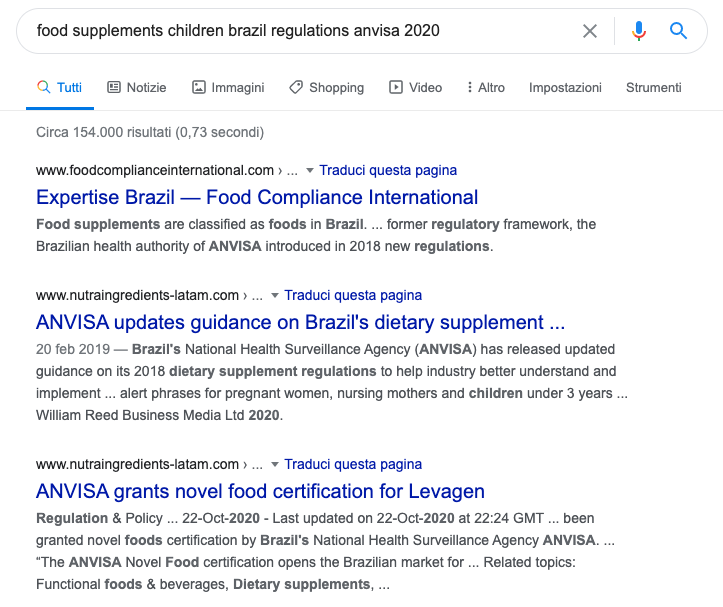
Now let’s try the same research in Digicomply’s regulations catalogue, all it requires is three simple steps:
First of all we search for “children food”.
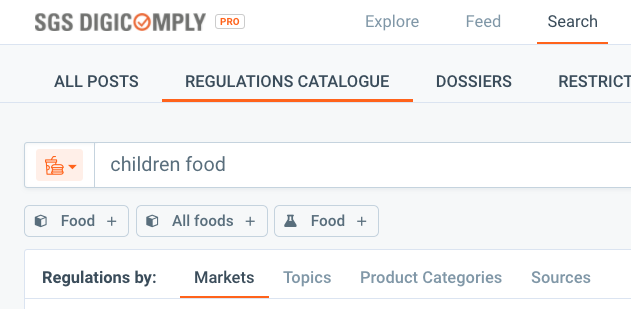
Secondly, we add Brazil as market:
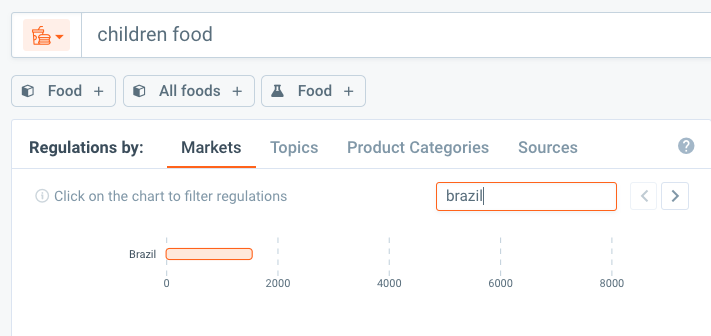
And third, we simply filter by the most recent, obtaining as second result the regulation we are looking for, which is entitled: “Resolution of Collegiate Board - RDC No. 437, OF NOVEMBER 5, 2020 to update the list of food additives authorized for use in food supplements intended for infants and early childhood children.”
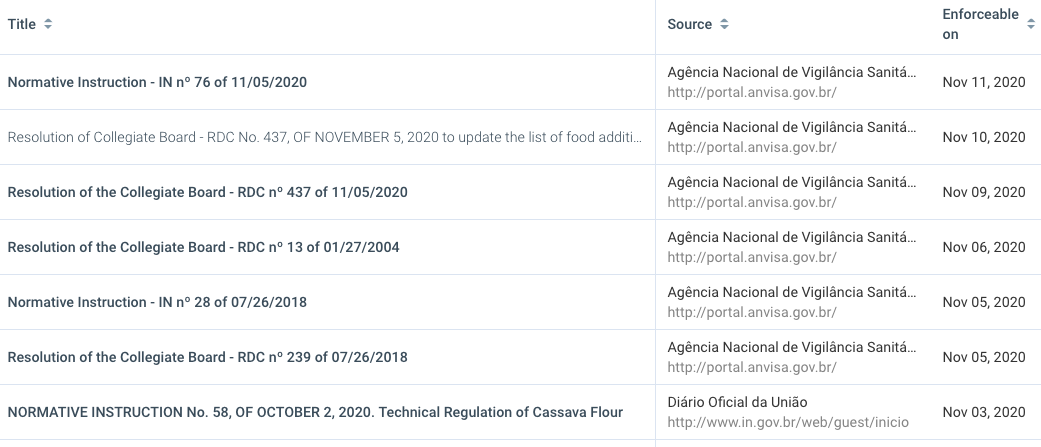
So, if we didn’t know about this document, we would just need to read a total of two documents to find out about the most recent regulations in Brasil for food supplements dedicated to children and infants.
Another example: looking for Covid-related recent regulations
Because of the covid-19 epidemic, a vast amount of new regulations came out. How to search quickly for the ones that we are most interested in?
The Regulations Catalogue allows to do this in a fraction of the time required for, say, a search on Google or other search engines.
Let’s assume for example that we want to search for regulations affecting fruits and vegetables in Spain, related to covid.
It’s a three clicks search:
- First we choose Spain as a market and we use the keyword covid-19:
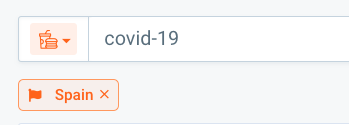
And then we go to Product categories where we filter for “Fruits and vegetables:
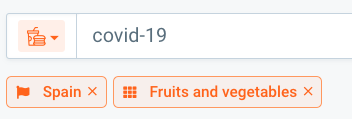
That’s it, we are already seeing relevant results, for example Royal Decree 558/2020 which is basically the adoption by the Spanish government of the rules issued by the European Union for fruits and vegetables.

A Direct Connection with Regulations Guides
The Regulations Catalogue works in conjunction with all other features of the Digicomply platform.
So for example when performing a search, a dedicated box always displays the relevant Food Regulatory Guides present in our database.
Continuing with the above example connected to covid-19 regulations for Spain, the box highlighted below takes us directly to the most relevant guides for the Spanish food market.

SUMMARY
We think that this will make users find accurate information quicker than other means. However, we want you to decide this and continually share with us how we can make it even better: we are constantly improving Digicomply to make it the best regulatory search engine available.




.webp?width=1644&height=1254&name=Food%20Safety%20Dashboard%201%20(1).webp)
